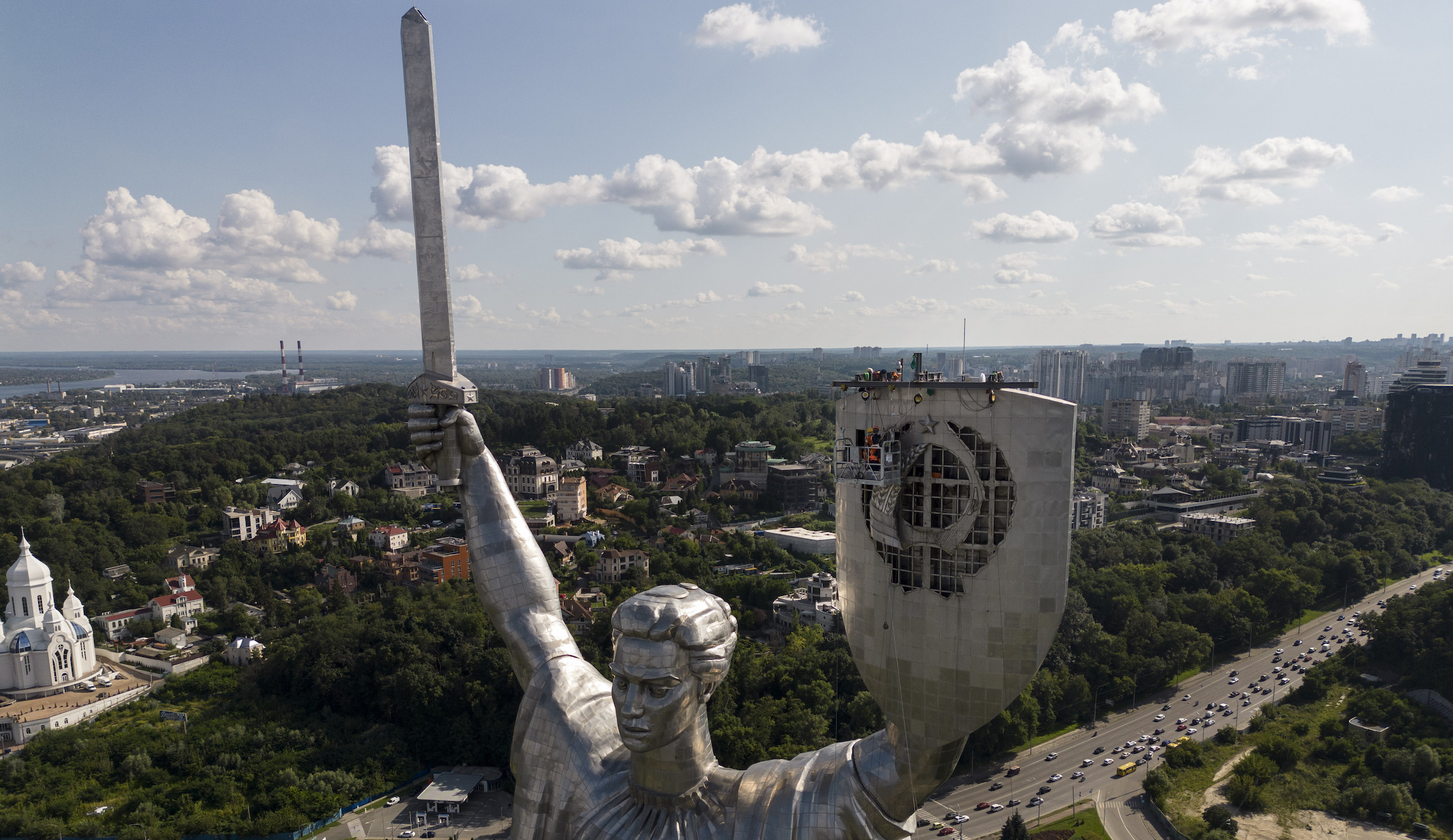
Perplexed Ukrainians mock US presidential candidates debating their future: ‘Just stupid’
Joel Gehrke
Video Embed
Sometimes, for a Ukrainian lawmaker who takes time between air raid alerts to monitor U.S. political debates about Russia’s invasion of its smaller neighbor, there’s nothing to do but laugh.
“This guy — he is really weird,” Ukrainian Foreign Affairs Chairman Oleksandr Merezhko told the Washington Examiner in between chuckles. “He’s really weird, and what he says is stupid. It’s just stupid.”
DONALD TRUMP INDICTED: THREE THINGS WE LEARNED IN JACK SMITH’S SUPERSEDING INDICTMENT
Merezhko was referring to Vivek Ramaswamy, the smooth-talking biotech entrepreneur whose rhetorical talent and knack for channeling the preferences of conservative voters has propelled his long-shot candidacy into an early third-place showing in some polls. Only moments earlier, Merezhko had outlined in dutifully respectful terms the reasons why Ukrainian officials must refrain from commenting on internal American debates — but he broke character at the mention of Ramaswamy.
“OK, there can be all kinds of strange candidates for president, yes, but … he is not a serious candidate to me,” Merezhko said. “But, what he says, it’s just a blatantly stupid thing, you know?”
Ramaswamy drew that derisive response through his promise, if elected, to cut off aid and compel the Ukrainian government to abandon its hope of liberating Russian-occupied territory. The United States would also abandon its promise to support Ukraine’s eventual entry into NATO, all on the theory that Russian President Vladimir Putin would cut ties with China in exchange for those U.S. concessions. The typically mild-mannered Merezhko, by training an expert in international law, tweeted recently that “such stupid appeasers should be kicked out of the U.S. politics,” and he defended the comment as an exception that proves the rule.
“You know, to tell you the truth, I even didn’t know that he’s a candidate for [the] presidency,” he said when reminded of the tweet. “I didn’t know who he was. I thought he is a pundit or a local politician, but he’s not important.”

Merezhko isn’t the only Ukrainian policymaker or official to indulge in throwing an occasional barb at upstart presidential aspirants. Ukrainian Ambassador Olexander Scherba, who came out of retirement to spearhead the Ukrainian Foreign Affairs Ministry’s strategic communications, has described Robert F. Kennedy, Jr., the anti-vaccine scion of Democratic Party royalty who launched a primary challenge against President Joe Biden, as a “dude [who] really sees Ukrainians as some kind of inferior race, good only as instrument in the Russia-America fight.”
It’s the kind of provocative commentary on a presidential election cycle that might once have been verboten, if not impossible. Yet it has been enabled, if not necessitated, by the unprecedented combination of a war in Europe during the social media age.
“We see the war in real time; you know, basically, the next moment after a missile strikes, there is already information from photos and videos,” Center for European Policy Analysis nonresident senior fellow Olga Tokariuk, an independent journalist, told the Washington Examiner in an interview from her country.
“And on the other hand, of course, [there’s] all that reporting and debate on what is happening behind the scenes in countries [debating] ‘How should we modify this support? Should we do more, should we do less, should we do different things,’” she continued. “It’s probably unprecedented, in modern times, to see how the decision-making and debate is unfolding in real time.”
Most Ukrainian citizens, Tokariuk noted, are not on X (the Elon Musk-owned social media app formerly known as Twitter), but they have enough awareness of the U.S. presidential cycle to feel “a certain degree of worry that the policy might change for the worst.” And there was no missing former President Donald Trump’s recent boast that he could “have that war settled in one day,” which drew a censorious rebuttal from Ukrainian President Volodymyr Zelensky.
“They are aware of Trump, and Trump is a worry,” said former Ambassador Kurt Volker, who was the State Department’s point man for Ukraine for the two years before Trump’s first impeachment scandal. “And you get that not only from Ukraine but from everybody in Europe? They’re focused on Trump. I keep pointing out that … it’s a long time from now — as long as it has been since Russia launched this full-scale invasion, till now, is as long as it will be to our next inauguration — so a lot of things happen in reality before we get there.”
In Tokariuk’s telling, the persistent U.S. misgiving that some forms of aid to Ukraine will provoke Russia to use nuclear weapons or escalate against the West feels “surreal” to Ukrainians who are convinced that American policymakers misunderstand how to manage threats from the Kremlin.
“This kind of logic, which is driven more by fear of an escalation than by the resolve of actually acting forcefully, maybe taking the initiative and making Russia face this strength and force, it is really something that Ukrainians, I think, really struggle with accepting,” she said. “Very often Western policy, and American policy, is driven by this fear of escalation, rather than by the understanding that, actually, escalation comes if we do not act, not if we act. Escalation comes if we show weakness, not if we show strength.”
Merezhko, for his part, wants Ukrainian officials to reach out to “right-wing Republicans to try to bring them on our side, to try to persuade them to be our friends.” Ukraine’s victory in the war, he argues, is a matter of honor and prudence for the U.S., which helped to persuade Ukraine to relinquish its nuclear weapons stockpile in 1994 in exchange for international security assurances.
“And to break this trust, it would mean undermining U.S. credibility in the whole world,” Merezhko warned, predicting that other countries would feel an incentive to acquire nuclear weapons of their own. “So if Ukraine is defeated by Russia … it’s not in the interest of the United States because it might lead to chaos. Nuclear weapons will not be under control. And the more countries [that] will have new bombs, the more chances are that they will be using these nuclear bombs. And there will be more chances that there will be conflicts with the use of nuclear bombs.”
Ukrainian officials sometimes seem perplexed that the “party of Reagan” has so many constituents resistant to such an argument. “Just found out Kyiv has a Ronald Reagan street,” Scherba tweeted on Tuesday. “Does Washington have one?”
CLICK HERE TO READ MORE FROM THE WASHINGTON EXAMINER
To succeed in making that argument, Merezhko allowed, they need to avoid antagonizing “serious candidates, heavyweights” in the Republican primary field — a list that includes Trump, in his judgment, but not Ramaswamy.
“Even Trump doesn’t allow himself to say such stupid things,” Merezhko said. “Even Trump, you know?”
